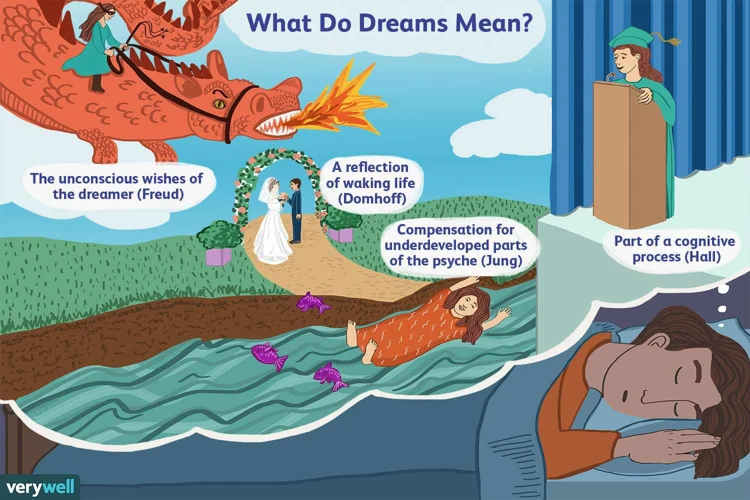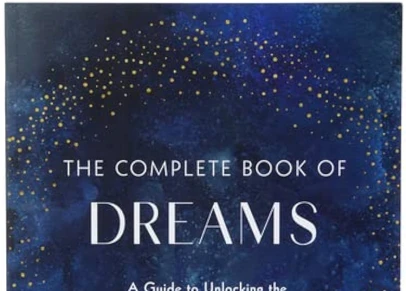Have you ever woken up from a dream and wondered if you were still in one? It’s a disorienting feeling, trying to decipher between reality and the bizarre world of dreams. Well, fear not, as we are here to help unlock the mystery for you. In this article, we will delve deep into the significance of dreams and their role in psychology and culture. We will also explore how to recognize dream signs, techniques to determine if you’re dreaming, and how to uncover the meaning behind your dreams using a dream dictionary. So, join us on this bewildering journey as we unravel the enigma of dreams and discover the secrets they hold.
The Significance of Dreams

Dreams have long fascinated psychologists, as they provide valuable insights into our unconscious mind. Sigmund Freud, the renowned psychoanalyst, believed that dreams were a gateway to our hidden desires and repressed emotions. He believed that dreams served as a way for the unconscious mind to express itself, often through symbolism and metaphor. Dreams allow us to process our daily experiences and emotions, potentially aiding in problem-solving and emotional regulation.
Dreams have not only captivated psychologists but also cultures throughout history. Different cultures interpret dreams in diverse ways, often attributing mystical or spiritual significance to them. For example, in ancient Egypt, dreams were considered messages from the divine realm and were heavily relied upon for guidance. Similarly, Native American tribes believed that dreams held messages and insights from their ancestors. These cultural interpretations highlight the universal fascination with dreams and their perceived importance.
The Role of Dreams in Psychology
In the field of psychology, dreams play a significant role in understanding the complexities of the human mind. They offer a window into our unconscious thoughts and emotions, providing valuable insights into our mental and emotional well-being. Psychologists use various theories and approaches to analyze and interpret dreams, such as Freud’s psychoanalytic theory, which emphasizes the hidden symbolism and latent meanings of dreams. Other psychologists explore the cognitive aspects of dreaming, investigating how dreams contribute to memory consolidation and problem-solving. Additionally, research suggests that dreams can serve as a way to process and cope with traumatic experiences and emotional challenges. By unraveling the intricate tapestry of dreams, psychologists gain a deeper understanding of the human psyche and its inner workings.
The Cultural Interpretation of Dreams
The interpretation of dreams varies significantly across different cultures. In Chinese culture, dreams are often seen as messages from the divine or ancestors, and dreaming of deceased loved ones is believed to be a sign of their presence and guidance. In India, dreams are interpreted based on astrological charts and are seen as a connection between the earthly realm and the spiritual realm. In Western cultures, dreams are typically seen as a reflection of one’s subconscious mind and can be analyzed using psychological theories. Additionally, some cultures have specific interpretations for common dream symbols, such as dreaming of a heart attack, which can represent fear or anxiety, or dreaming of an aquarium, which can symbolize emotional depth and introspection. Despite cultural variations, dreams continue to hold a profound place in human consciousness, offering unique insights into our inner worlds.
Recognizing Dream Signs

Recognizing dream signs is essential for unraveling the mysteries hidden within our dreams. One common approach is to identify recurring themes and symbols that appear in your dreams. These can vary from person to person but may include situations like falling, flying, or being chased. By keeping a dream journal, you can begin to notice patterns and symbols that frequently arise, providing valuable insight into your subconscious mind. Another technique for recognizing dream signs is practicing lucid dreaming. This is when you become aware that you’re dreaming while still in the dream state and can take control of the narrative. Lucid dreaming allows you to actively engage with your dream world and explore its meanings and messages. [Learn more about lucid dreaming with our guide on dreaming of an aquarium.]
Common Dream Themes and Symbols
When it comes to dreams, certain themes and symbols tend to appear frequently, transcending cultural boundaries. For instance, dreams about falling are a common occurrence, often linked to feelings of insecurity or lack of control. Flying dreams, on the other hand, symbolize a sense of freedom and empowerment, representing our aspirations and ambitions. Another frequently experienced dream is being chased, which typically signifies unresolved fear or threats in our waking lives. These symbols and themes in dreams provide insight into our subconscious thoughts and emotions, allowing us to better understand ourselves and our personal experiences. If you’re interested in exploring more dream symbols, you can check out our article on the meaning of dreaming about floating in air.
Lucid Dreaming: Taking Control within the Dream
Lucid dreaming, a fascinating phenomenon, allows individuals to become aware that they are dreaming while still in the dream state. This unique state of consciousness provides an opportunity to take control and actively participate in the dream experience. When lucid dreaming, one can manipulate the dream environment, explore new possibilities, and even engage in deliberate actions. Techniques such as reality checks, like trying to push your finger through your palm, can help initiate lucidity. Additionally, maintaining a dream journal and practicing visualization exercises can enhance the chances of experiencing lucid dreams. It’s important to note that while lucid dreaming offers exciting possibilities, it may require practice and patience to achieve consistent lucidity. So, if you’re curious about taking control within your dreams, delve into the world of lucid dreaming and unlock the immense potential it holds.
Am I in a Dream? Unveiling Reality

If you find yourself questioning whether you are in a dream or reality, there are techniques you can use to help discern the truth. One technique is to perform reality checks throughout the day, which involves questioning your surroundings and testing the laws of physics. For example, try pushing your hand through a solid object or checking the time on a clock. In dreams, these reality checks often fail, revealing the dream state. Another method is to cultivate emotional awareness. Dreams can evoke intense emotions, and by actively monitoring your feelings, you may be able to detect when you are in a dream. Pay attention to any sudden shifts in emotion or unusual emotional responses. By utilizing these strategies, you can enhance your ability to determine whether you are in a dream or firmly grounded in reality.
Reality Checks: Techniques to Determine if You’re Dreaming
Reality checks are essential techniques to help you distinguish between dreams and reality. By regularly performing these checks, you can train your mind to become more aware of the dream state. One technique is to conduct a “pinch test,” where you pinch yourself and observe if you feel pain. In dreams, sensations are often dulled or non-existent, so if you don’t feel any pain, it may indicate that you’re dreaming. Another technique involves examining your surroundings and looking for inconsistencies or surreal elements. These could include unusual colors, distorted objects, or gravity-defying scenarios. Additionally, trying to read or understand written text in a dream can be challenging, as the text tends to change or become nonsensical. By consistently practicing these reality checks, you can increase your chances of becoming lucid within your dreams and gaining control over your dream experiences.
Emotional Awareness: Sensing the Dream State
Emotional awareness plays a crucial role in sensing the dream state and recognizing whether you’re in a dream or not. Dreams can evoke intense emotions, and the way we experience and interpret these emotions can provide clues about the dream’s reality. Take, for example, a dream of falling or being chased. If you feel a rush of fear and panic, it may indicate that you’re in a dream. Similarly, if you experience overwhelming joy and exhilaration, it could be a sign of being within the dream realm. It’s important to pay attention to the intensity and nature of your emotions to gain insight into the dream state. By cultivating emotional awareness, we can better navigate the realm of dreams and unravel their hidden meanings. To dive deeper into specific dream symbols and interpretations related to emotions, you can explore our article on dreaming of an aquarium.
Unlocking Dream Meanings

To unlock the meanings behind your dreams, there are various techniques you can employ. One popular method is using a dream dictionary, which offers explanations of common symbols and themes found in dreams. These dictionaries can help you decode the symbolism and uncover hidden messages within your dreams. However, it’s important to remember that dream interpretation is subjective, and symbols may vary depending on personal experiences and cultural backgrounds. Another approach is exploring personal associations and interpretations. Reflecting on the emotions and experiences you had during the dream can provide insights into its meaning. Additionally, seeking therapy or joining support groups can provide guidance from professionals and others who have experienced similar dreams. Remember, understanding the meaning behind your dreams can lead to self-discovery and personal growth.
Using a Dream Dictionary: Deciphering Symbolism
When it comes to unraveling the meanings behind our dreams, a dream dictionary can be a valuable tool. A dream dictionary is a collection of symbols and their corresponding interpretations, providing insight into the symbolism present in our dreams. Each symbol in a dream can hold a deeper meaning and tapping into its significance can offer clues about our subconscious thoughts, emotions, and desires. For example, if you dream about a heart attack, it may not necessarily indicate a literal health concern but rather represent a metaphorical sense of emotional distress or a fear of losing control. By consulting a dream dictionary, you can begin to decode the symbolism within your dreams and gain a deeper understanding of
Subscribe to Our Newsletter
Sign up to receive the latest news and updates.
Exploring Personal Associations and Interpretations
When it comes to interpreting dreams, it is essential to explore our personal associations and meanings. While dream dictionaries can provide some general interpretations of common symbols, it’s crucial to remember that the meaning of a dream can be highly subjective. Each individual has their unique set of experiences, emotions, and symbols that hold personal significance. To explore personal associations, consider journaling your dreams and reflecting on the emotions, people, and events in your life that may connect to the dream. Look for patterns or recurring themes that might provide further insight into the meaning. It can also be helpful to discuss your dreams with trusted friends, therapists, or support groups who can offer alternative perspectives and interpretations. Ultimately, it is through this introspection and exploration that we can unlock the hidden messages our dreams hold.
Common Dreams and Interpretations
Common dreams can often leave us puzzled and wondering about their meaning. One common dream theme is the sensation of falling. This dream is thought to symbolize feelings of insecurity or a lack of control in our waking lives. Another common dream experience is flying, which is often associated with a sense of freedom and empowerment. Being chased in a dream is yet another recurring theme, typically representing unresolved fears or threats in our lives. These dream interpretations provide valuable insights into our subconscious thoughts and emotions, helping us gain a deeper understanding of ourselves. Exploring these common dream symbols can be a fascinating journey of self-discovery and personal growth.
Falling: Symbolizing Insecurity or Lack of Control
The sensation of falling in a dream can evoke feelings of insecurity, vulnerability, or lack of control. Falling dreams are common and can occur during times of stress, anxiety, or when facing a challenging situation in waking life. Symbolically, falling represents a loss of stability or a fear of failure. It may reflect a fear of losing control over a situation or feeling overwhelmed by life’s uncertainties. This dream can serve as a reminder to address feelings of insecurity and work towards regaining control and stability in your waking life. By analyzing the context and emotions surrounding the falling dream, you can gain valuable insights into your subconscious fears and take steps towards building a sense of security and confidence.
Flying: Empowering Freedom and Aspirations
Flying is a common dream theme that symbolizes a sense of freedom and empowerment. When we dream of flying, we often experience a euphoric sensation of soaring through the sky, liberated from the constraints of gravity. This dream is believed to represent our aspirations, goals, and desire for personal growth. When we fly in our dreams, we break free from limitations and explore new heights. It signifies a sense of control over our lives and the ability to transcend obstacles. Flying dreams can also represent the need for perspective and a broader outlook on life. They inspire us to reach for the skies and embrace the limitless possibilities that lie ahead. So, if you find yourself dreaming of flying, take it as a sign to pursue your dreams and soar to new heights in your waking life.
Being Chased: Unresolved Fear or Threats in Life
Being chased in a dream is a common theme that can evoke intense emotions and feelings of fear. Psychologically, being chased in a dream often represents unresolved fears or threats in one’s life. It symbolizes a sense of vulnerability or the feeling of being pursued by something or someone. The presence of a pursuer in a dream may indicate that there are aspects of your waking life that you are trying to avoid or escape from. It could represent challenges, conflicts, or unresolved issues that you feel overwhelmed by. This dream scenario may also suggest a need to confront your fears or confront situations that you’ve been avoiding. It serves as a reminder to address and overcome the anxieties that have been holding you back. Remember, facing your fears head-on can lead to personal growth and empowerment.
Conclusion
In conclusion, dreams continue to intrigue and mystify us. They provide a glimpse into the inner workings of our minds, serving as a playground for our subconscious thoughts and emotions. The significance of dreams lies not only in their psychological implications but also in their cultural interpretations. Exploring dream signs, lucid dreaming, and unlocking the meanings behind our dreams can offer valuable insights and self-reflection. So, whether you’re soaring through the sky, being chased, or experiencing surreal scenarios, embracing the world of dreams can be a fascinating and enriching journey. Remember, next time you find yourself questioning reality, dive into the realm of your dreams and uncover the hidden messages within. Sweet dreams!
Frequently Asked Questions
1. Can dreams predict the future?
While some people claim to have experienced prophetic dreams, there is no scientific evidence to support the idea that dreams can accurately predict the future. Dreams are a reflection of our subconscious thoughts, emotions, and experiences rather than a glimpse into future events.
2. Why do we forget our dreams so quickly?
The rapid fading of dreams from memory is a common phenomenon. It is believed that this occurs because the brain prioritizes the processing of new information over retaining dream memories. Additionally, dreams often lack the vividness and logical structure of waking memories, making them more challenging to recall.
3. Can dreams have symbolic meanings?
Yes, dreams often contain symbolic meanings that may represent deeper emotions, desires, or conflicts. Symbolism in dreams can vary based on personal experiences and cultural influences. Analyzing the symbols in your dreams can help uncover hidden meanings and provide insights into your subconscious mind.
4. What is lucid dreaming?
Lucid dreaming is a state in which the dreamer becomes aware that they are dreaming while still in the dream. This awareness allows the dreamer to exert some control over the dream narrative and consciously participate in the dream experience.
5. How can I improve dream recall?
Keeping a dream journal by your bedside and writing down your dreams as soon as you wake up can significantly improve dream recall. Additionally, practicing relaxation techniques before sleep and getting enough quality sleep can enhance dream rememberance.
6. Why do recurring dreams happen?
Recurring dreams can occur for various reasons, such as unresolved emotions, fears, or situations in your waking life. They may signify patterns or issues that need attention or resolution. Paying attention to the themes and emotions in recurring dreams can provide valuable insights into your subconscious mind.
7. Can I learn new skills or gain insights through dreams?
While dreaming, you may experience scenarios that can simulate learning or problem-solving situations. While these dream experiences can enhance your creative thinking and offer insights, it is important to independently practice and acquire new skills in your awake state.
8. Are nightmares a sign of an underlying problem?
Nightmares can be a manifestation of underlying stress, anxiety, or trauma. They can serve as a way for the subconscious mind to process and cope with difficult emotions or experiences. If nightmares become recurrent or significantly affect your well-being, seeking professional help from a therapist may be beneficial.
9. Can medications or substances affect our dreams?
Yes, certain medications, such as antidepressants or sleeping aids, can influence the content and intensity of dreams. Similarly, substances like alcohol, nicotine, and recreational drugs may impact dream recall and alter the dreaming experience.
10. Do all dreams have a meaning?
The meaning of dreams can vary from person to person. While some dreams may hold significant symbolic meanings, others may simply be a reflection of random thoughts and experiences. It’s important to interpret dreams in the context of your own feelings, experiences, and personal associations.










